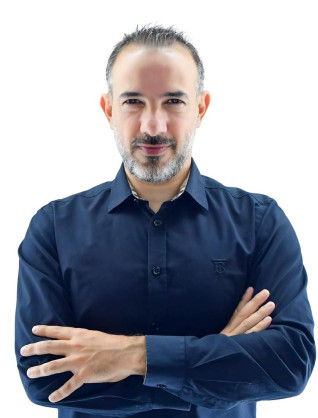By Rami Osman (https://apo-opa.co/3RuQqpU), Director for Business Development, MediaTek Middle East and Africa (https://www.MediaTek.com).
Fixed Wireless Access (FWA) 5G is emerging as the technology of choice for closing the remaining digital divide in Africa and bringing the educational, entertainment, business and lifestyle benefits of fast broadband to a much wider population in Africa. This will lead to a 5G boom for the African telecoms sector over the next five years, as operators race to reach more people with 5G connectivity.
5G is key to rolling out broadband services in Africa that can support tomorrow’s most demanding applications at scale, at a cost that will be commercially viable for operators and affordable for consumers.
Africa still experiences significant gaps in connectivity, with only 25% of the population currently using the mobile internet, according to the GSM Association (GSMA) (https://apo-opa.co/3RzrsWx). 5G offers an opportunity for currently excluded people and regions to leapfrog to the latest and fastest mobile connectivity, with the GSMA (https://apo-opa.co/3T9IzPP) forecasting that 5G will grow from around 1% of total connections in Africa today to 22% by 2030.
Enabling true broadband speeds without fibre
With speeds around 10-fold than 4G as well as lower latencies, 5G can enable consumers that don’t have access to fibre to enjoy true broadband speeds and performance for the first time. This will enable them to have a better experience on applications such as 4K video for videoconferencing and streaming, multiplayer gaming and cloud-based productivity applications.
Looking to the near-future, 5G will allow consumers to also use next-generation applications such as 8K video, augmented and virtual reality, cloud gaming, advanced internet of things and artificial intelligence applications in the smart home, school, workplace, and car. This will help to integrate Africa into the digital world economy on a more even footing.
Fibre to the home penetration in Africa is estimated to be only around 5% (https://apo-opa.co/3uGfVLR) and older FWA solutions such as LTE and WiMax have struggled to gain traction on the continent. However, FWA 5G enables operators to deploy the connectivity technology in communities where fibre isn’t commercially viable.
It is possible to deploy 5G with capital expenditure per user that is a fraction of digging trenches and laying down fibre, especially in areas where there are already mobile towers. This makes FWA 5G a highly attractive option for Africa’s mobile operators.
Unlocking growth for operators
With high levels of mobile penetration in Africa, most mobile operators are now seeking new growth opportunities. Targeting the connected home and business with FWA services enables them to create new revenue streams by adding multiple new devices and users to their networks.
Spectrum allocation is currently the major barrier to wider deployment of 5G in many parts of the continent. But governments and regulators recognise that unblocking access to spectrum will unleash considerable economic and social benefits. We are thus optimistic that we’ll see a lot of 5G activity over the next couple of years.
Superior consumer experiences
From a consumer perspective, dedicated 5G FWA is a far superior option to using a mobile hotspot. While many African subscribers are using a mobile hotspot from their phone for internet access, the user experience isn’t as good as a dedicated connection. It’s annoying to lose your connection when you get a voice call, plus, battery life tends to run out faster when you’re hotspotting.
Leading operators are using platforms such as the MediaTek T750 (https://apo-opa.co/4abeUvv) and MediaTek T830 (https://apo-opa.co/41ebhAT) to create dedicated 5G FWA consumer premises equipment (CPE). These full-featured systems-on-chip (SoCs) enable device makers to build extremely high-performance multi-gigabit CPE products, such as fixed wireless access (FWA) routers and mobile hotspots (Mi-Fi), in the smallest form factors possible.
The benefits of 5G FWA for Africa are clear. Operators can deploy high-speed broadband using already installed cellular infrastructure and avoiding the costs of laying down cables and users can get superfast internet services from a compact device that they can self-install. This will help to close the digital divide by addressing the significant gaps that still exist in the last mile in many parts of Africa.
Distributed by APO Group on behalf of MediaTek Inc..
For media queries:
Idea Engineers (PR agency for MediaTek)
Isabel Nkosi
Mobile: +27 (0)76 1174 923
isabel@ideaengineers.co.za
Social Media:
Twitter: https://apo-opa.info/3JAivb2
YouTube: https://apo-opa.info/434wZa2
Facebook: https://apo-opa.info/3NwaYef
Website: https://www.MediaTek.com/
Latest Stories
-
A lawyer’s lawyer who rises above politics – Appiah-Kubi on Ayine
30 minutes -
‘I will respond at the appropriate time’ – Anim Addo on GFA charge
35 minutes -
‘An angel for Ghana’s justice system’ – Andy Appiah-Kubi on Ayine’s AG appointment
48 minutes -
Today’s Front pages :Friday , January 10,2025
59 minutes -
Not supporting Accra Lions will make me a coward – Anim Addo on Maxwell Hanson remarks
1 hour -
Energy Minister-designate John Jinapor, orders ECG to suspend all supply payments
1 hour -
Ato Forson’s appointment as Finance Minister ‘sensible’ – Franklin Cudjoe commends Mahama
1 hour -
Electrochem Ghana condemns raid on its warehouse by thugs claiming NDC affiliation
3 hours -
Calm restored at Ntotroso after Newmont breach attempt
3 hours -
GUTA optimistic about government addressing business concerns
3 hours -
We have only rice to feed SHS students in Greater Accra – CHASS Chairman
3 hours -
Presidency unveils official portrait of Mahama
3 hours -
Government must prioritise salt development to grow economy – MIIF Board Chair
3 hours -
Ghana begins implementation of Global Internal Audit Standards
3 hours -
We will sustain and enhance free SHS policy – Mahama
3 hours

